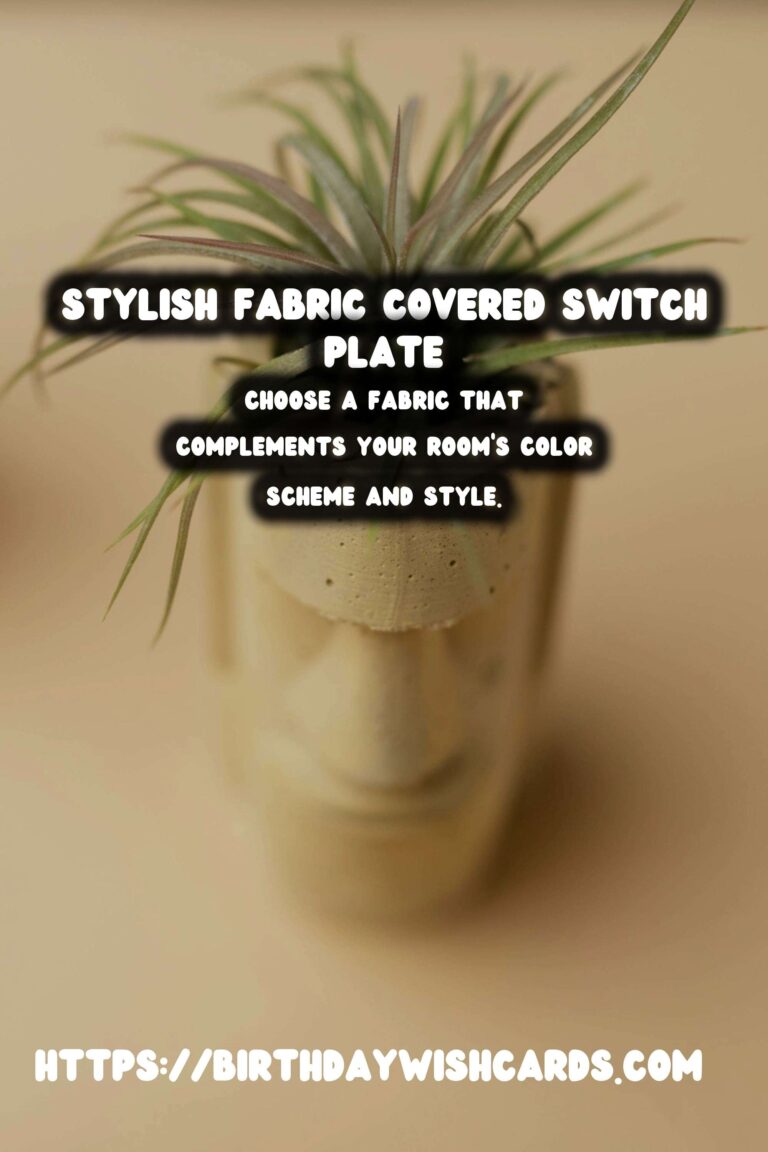
Switch plates are a small yet essential part of home decor that often go unnoticed. However, with a little creativity, you can transform these mundane items into eye-catching pieces. One of the most popular ways to achieve this is by using fabric to cover switch plates. Not only does this offer a personalized touch, but it also allows you to coordinate with your room’s decor seamlessly.
Why Cover Switch Plates with Fabric?
Covering your switch plates with fabric offers several benefits. Firstly, it’s a cost-effective way to update your decor without the need for expensive replacements. Secondly, fabric-covered switch plates add texture and color to a room, enhancing its overall aesthetic. Finally, this DIY project is simple and quick, making it perfect for beginners and seasoned crafters alike.
Materials Needed
To get started on your DIY fabric-covered switch plate project, you will need the following materials:
- Switch plates
- Fabric of your choice
- Mod Podge or a similar decoupage glue
- Scissors
- Craft brush
- X-Acto knife or similar cutting tool
- Screwdriver
Step-by-Step Guide
Step 1: Choose Your Fabric
Select a fabric that complements your room’s color scheme and style. Patterns such as florals, stripes, or geometric designs work well. Ensure the fabric is thin enough to fold easily around the edges of the switch plate.
Step 2: Prepare the Switch Plate
Remove the switch plate from the wall using a screwdriver. Clean it thoroughly to remove any dirt or grease, ensuring the fabric adheres properly.
Step 3: Cut the Fabric
Lay the fabric flat and place the switch plate on it. Cut around the plate, leaving an extra inch on each side to wrap the fabric around the edges.
Step 4: Apply the Glue
Use a craft brush to apply a thin layer of Mod Podge to the front of the switch plate. Carefully place the fabric on top, smoothing out any wrinkles or bubbles.
Step 5: Wrap the Edges
Once the fabric is adhered to the front, apply glue to the edges and wrap the extra fabric around to the back of the switch plate. Press firmly to ensure it sticks.
Step 6: Cut the Openings
Using an X-Acto knife, carefully cut out openings for the switches and screw holes. Be precise to ensure a clean finish.
Step 7: Seal the Fabric
Apply a final coat of Mod Podge over the fabric to seal it. This will protect the fabric from dirt and moisture, ensuring longevity.
Step 8: Reattach the Switch Plate
Once the Mod Podge is dry, reattach the switch plate to the wall. Enjoy your new, stylish switch plate!
Tips for Success
Here are some tips to ensure your DIY project is a success:
- Choose a fabric with a tight weave for the best results.
- If you’re covering multiple switch plates, consider using different but coordinating fabrics for a unique look.
- Be patient and allow each layer of glue to dry thoroughly before proceeding to the next step.
Conclusion
DIY fabric-covered switch plates are a fantastic way to add a personalized touch to your home. This simple project can dramatically enhance the look of a room while showcasing your creativity. With a few materials and a little time, you can transform ordinary switch plates into decorative elements that reflect your style.
Switch plates can be transformed into eye-catching pieces using fabric. This DIY project is simple, quick, and perfect for both beginners and seasoned crafters. Fabric-covered switch plates add texture and color, enhancing the room’s aesthetic. Choose a fabric that complements your room’s color scheme and style. Be precise when cutting openings for the switches and screw holes for a clean finish. 
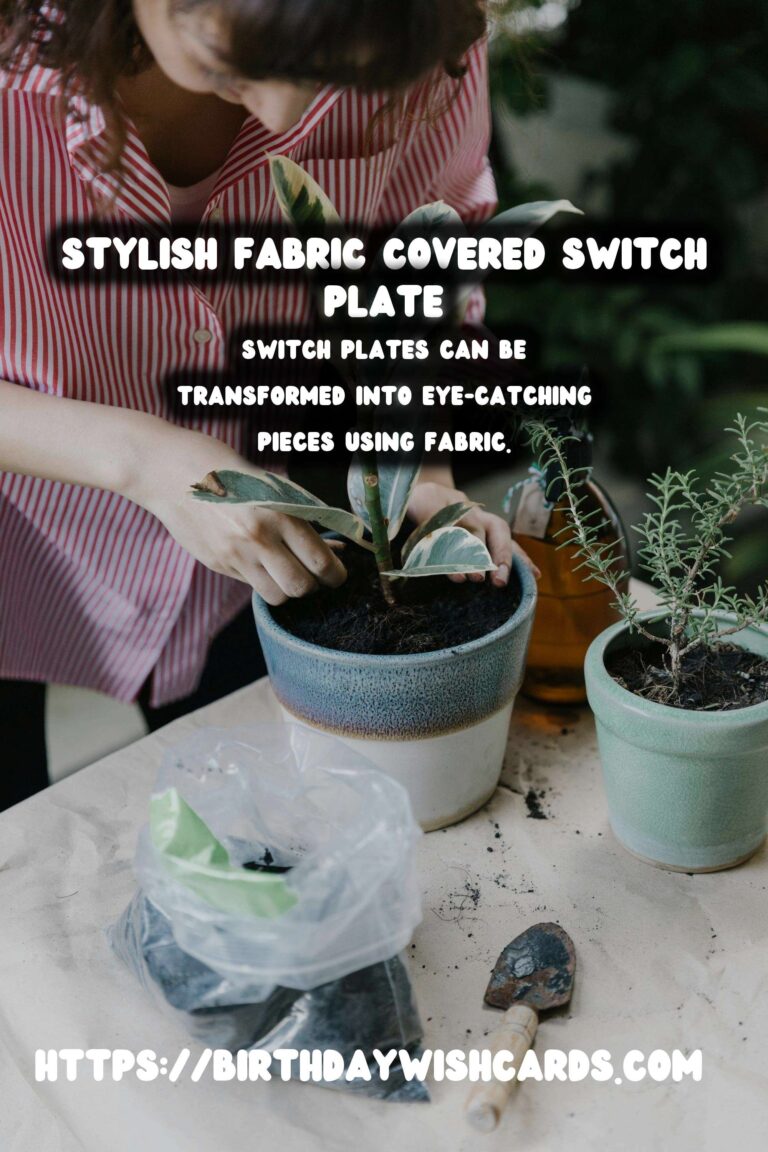
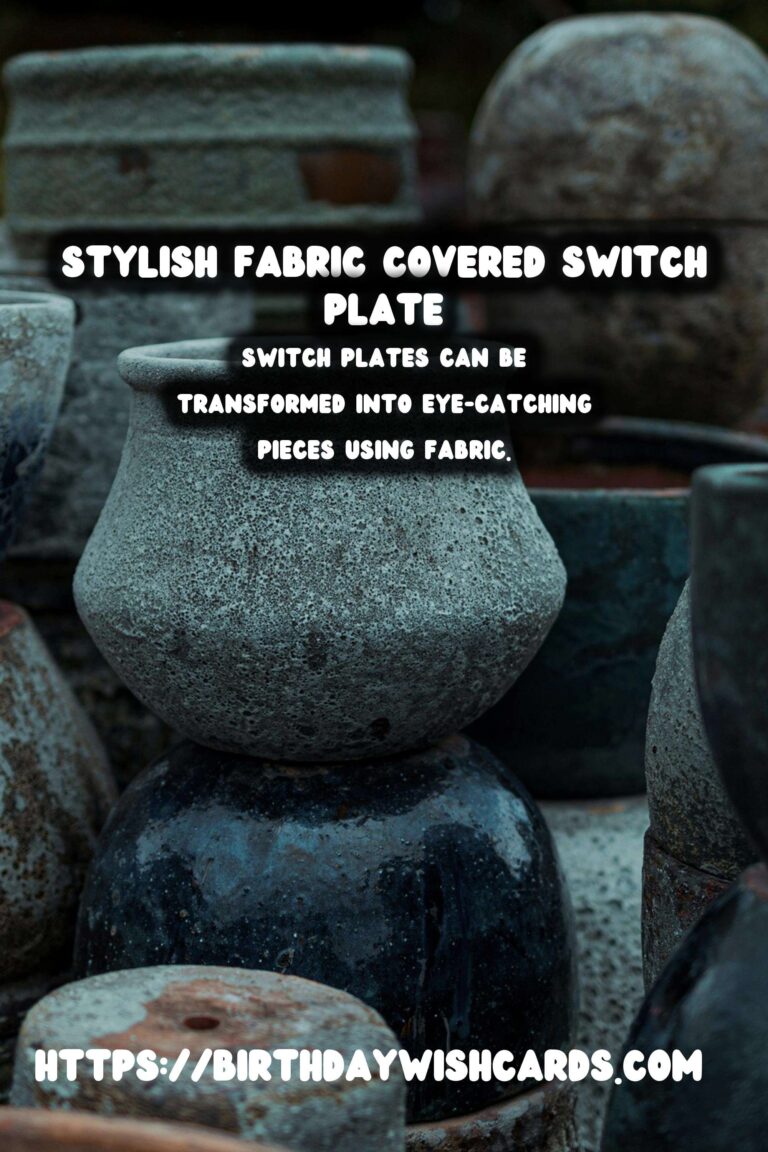

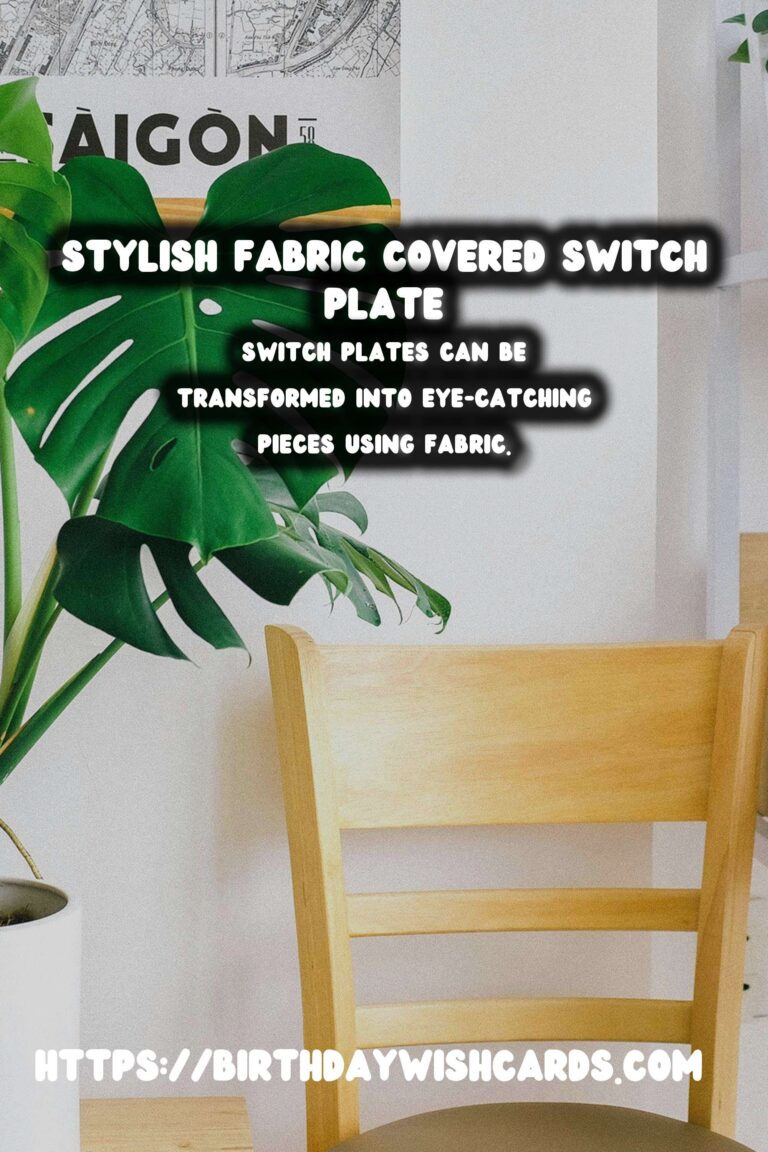
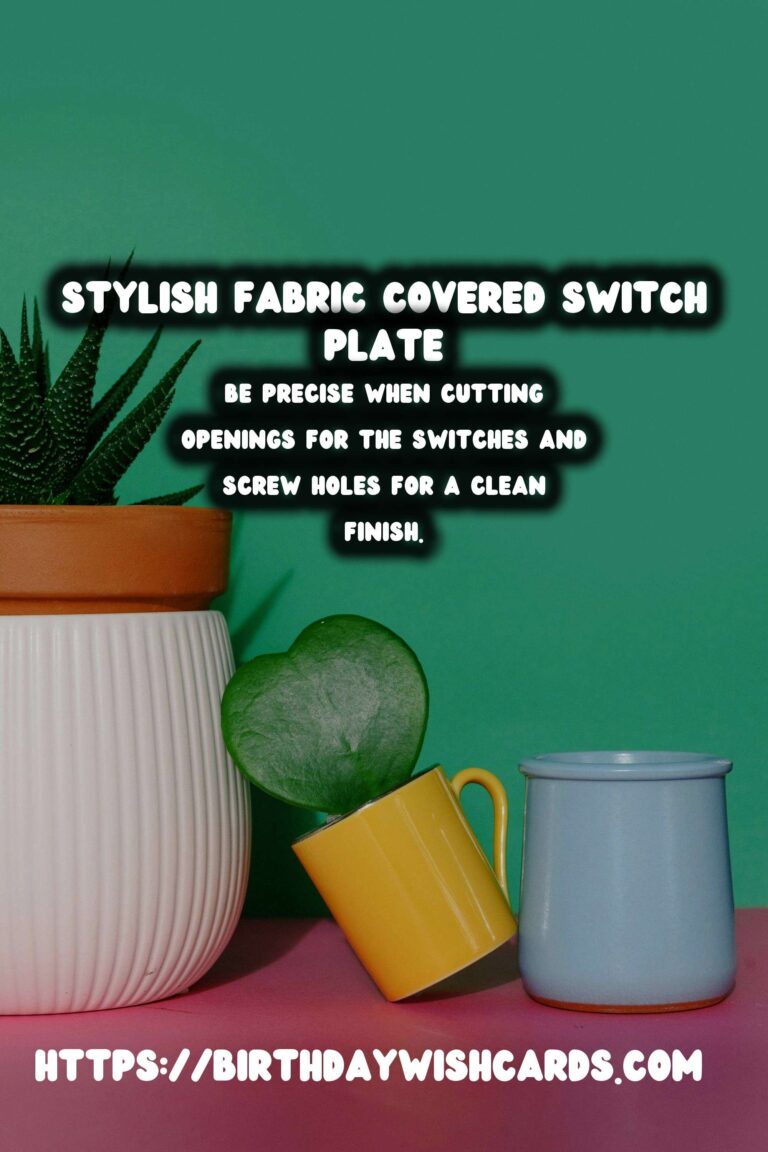
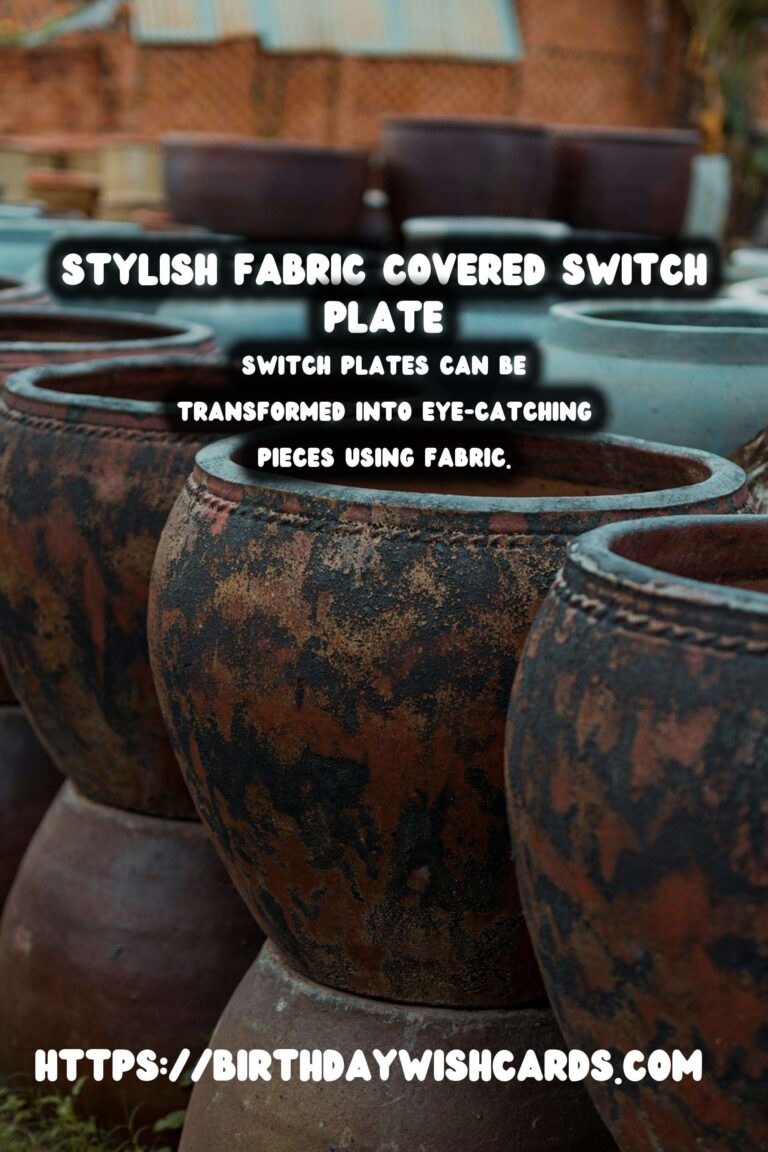
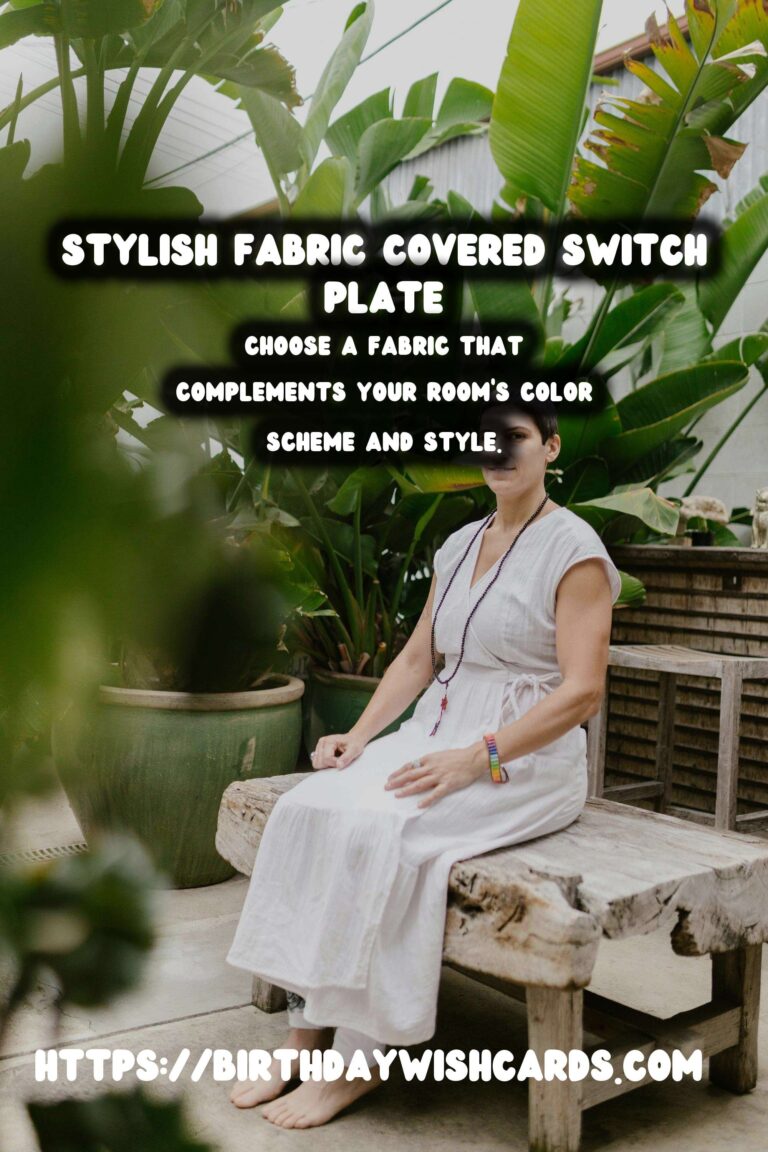
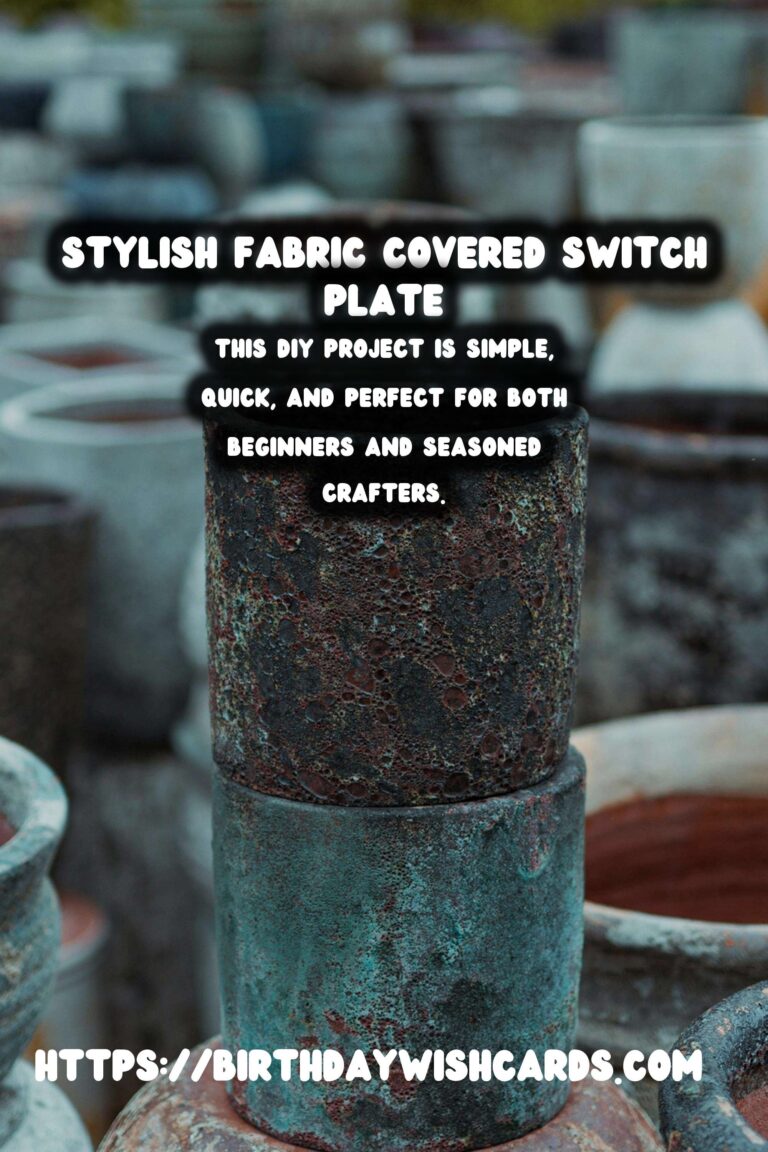
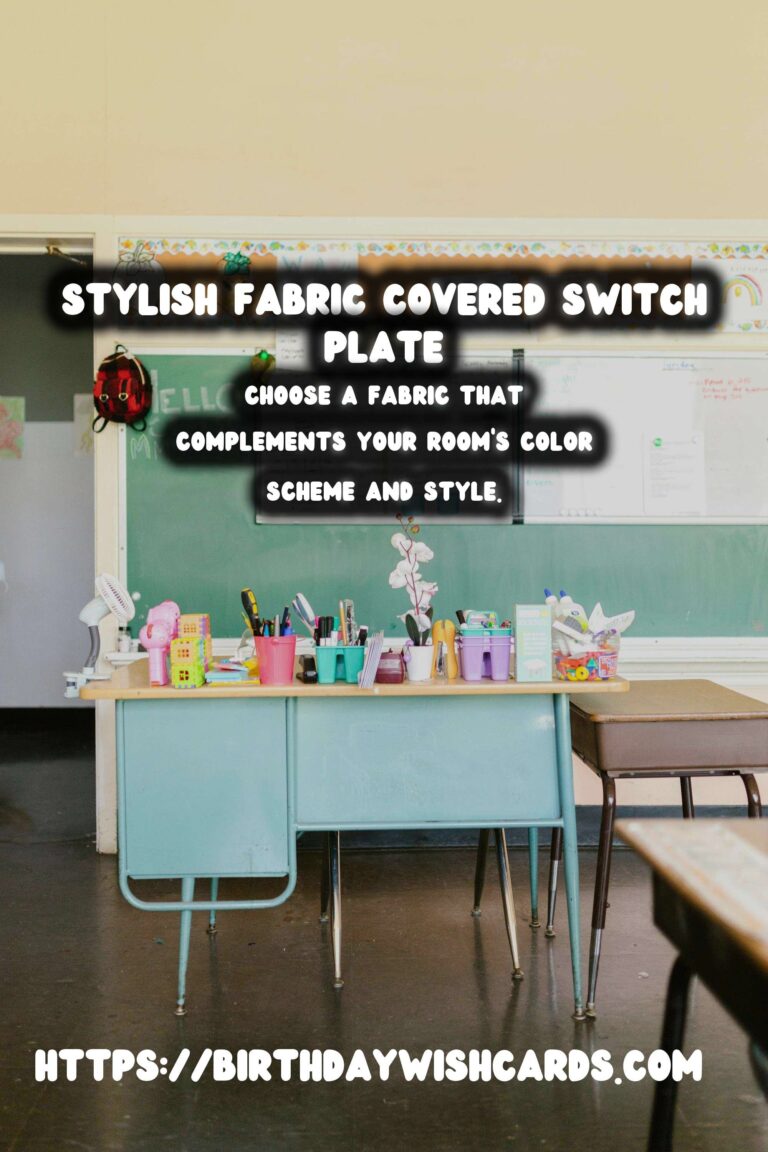
#DIY #HomeDecor #SwitchPlates #FabricCrafts #InteriorDesign




